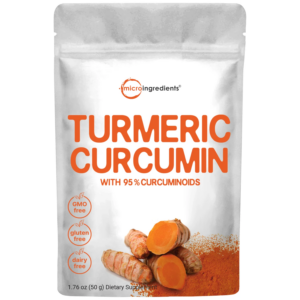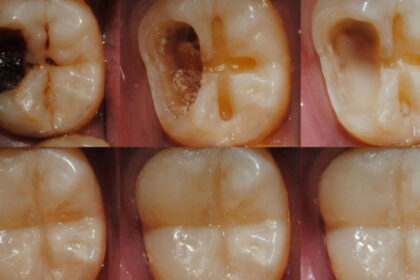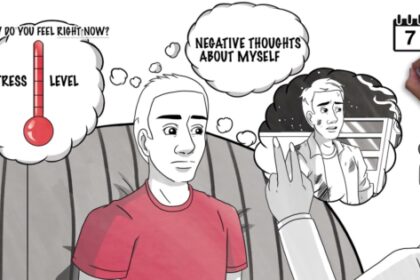For decades, cholesterol has been vilified as a silent saboteur of cardiovascular health, a notorious offender responsible for clogged arteries and heart disease. However, recent scientific discoveries have unveiled a surprising twist in this tale, one that challenges our conventional understanding of cholesterol’s impact on the human body.
Far from being solely a detriment to our well-being, cholesterol has emerged as a crucial player in the intricate symphony of brain function. In particular, its role in the formation and maintenance of brain synapses – the crucial connections between nerve cells – has captured the attention of neuroscientists and raised a compelling question: Could high cholesterol be, in some instances, a necessary component for optimal brain function?
This new perspective takes us beyond the boundaries of conventional wisdom and invites us to reconsider the dichotomy between ‘good’ and ‘bad’ cholesterol. While excess cholesterol in the bloodstream has been linked to cardiovascular risks, the evolving narrative suggests that its effects within the brain are more nuanced than we ever imagined.
The intricate interplay between cholesterol, learning, and memory presents a fresh lens through which we must assess the true implications of high cholesterol levels on overall health. As we delve deeper into the research surrounding the brain-cholesterol relationship, we begin to uncover the delicate balance that underpins our cognitive abilities and challenges the traditional stigma surrounding cholesterol.
In this article, we will explore the remarkable journey of cholesterol from cardiovascular adversary to cognitive ally, and contemplate whether high cholesterol may indeed hold a place in the intricate tapestry of brain function.
Redefining Cholesterol: Unraveling the Complex Truth
For over half a century, the prevailing mantra has echoed that cholesterol is a formidable adversary to our health. It’s no wonder that many people harbor concerns when discussing their cholesterol numbers.
The American Heart Association, with its unwavering dedication, has propagated the notion that elevated cholesterol levels correlate with an increased risk of heart disease. This message has been relentlessly drilled into our collective consciousness, shaping dietary choices, medical advice, and our understanding of heart health.
But, what if, after all this time, we’ve been chasing after a mirage?
As we reexamine the narrative, a startling realization emerges. A realization that challenges the very foundations upon which we’ve built our health beliefs. Recent scientific revelations indicate that the story of cholesterol isn’t confined to cardiovascular corridors alone.
The profound impact of cholesterol extends far beyond the heart, deeply entwining itself with the delicate workings of our brain and overall well-being.
Revisiting the Brain-Cholesterol Connection
Intriguingly, the human brain houses approximately a quarter of the body’s total cholesterol. This figure should give us pause, for nature seldom includes excess baggage.
Cholesterol’s presence in the brain isn’t arbitrary; it’s an essential component of brain synapses—the connections between nerve cells. Synapses, the communication channels of our brain, are pivotal to our cognitive processes, enabling learning, memory formation, and the intricate dance of information exchange.
Low cholesterol, it turns out, isn’t just a number on a medical report; it’s an intricate balance that can sway the fate of our cognitive health. A wealth of rigorous research has demonstrated that low cholesterol levels correlate with an increased prevalence of conditions like dementia, depression, and Parkinson’s disease.
The alarming truth is that neglecting cholesterol might come at the cost of our mental acuity and emotional well-being.
Beyond the Brain: Cholesterol’s Multifaceted Role
But the story doesn’t halt at synapses; it meanders into the depths of our digestive system. Cholesterol, as it transpires, plays a pivotal role in the production of stomach bile—a potent concoction that facilitates food breakdown and nutrient absorption.
The absence of adequate cholesterol can trigger a domino effect, leading to gastrointestinal disturbances, compromised immune function, and even issues related to bone density.
Cholesterol’s Innocence in the Court of Heart Disease
Cholesterol’s alleged crime—instigating heart attacks—has been challenged by emerging scientific scrutiny. The once-ironclad belief that saturated fat and cholesterol act as co-conspirators in cardiovascular catastrophe is unraveling.
The infamous “diet-heart hypothesis,” championed by Ancel Keys in the 1950s, painted dietary fats as the villains and catapulted the era of low-fat, low-cholesterol diets.
However, as subsequent research unveiled, this hypothesis was akin to building castles on sand. Long-term studies revealed that saturated fat consumption and cholesterol levels didn’t necessarily dance in synchrony.
Dr. Ramsden’s groundbreaking analysis of the Minnesota Coronary Experiment unearthed a startling truth: the reduction of serum cholesterol correlated with an increase in mortality rates.
The Culprit Unveiled: The Role of Inflammation
So, what truly sparks the flames of heart disease? The answer defies the decades-old narrative. It’s not cholesterol that ignites this fire, but rather a mélange of sugars, highly processed grains, and vegetable oils that fuel inflammation within our blood vessels.
These inflamed passageways, prone to plaque formation, invite atherosclerosis—the clogging of arteries—and pave the way for heart-related woes.
Reduce Inflammation Naturally Using Micro Ingredients Turmeric Powder!
Click Here To Learn More!
A Paradigm Shift Beckons
As the dust of conventional wisdom settles, a paradigm shift beckons. Cholesterol, once demonized, emerges as an intricate player in the symphony of our health. The brain’s synapses, the gut’s efficiency, and the heart’s vigor—all are influenced by the interplay of cholesterol.
This journey unravels more than just a scientific narrative; it unravels a societal narrative too. Our dietary choices, ingrained by decades of advice, need a thorough reevaluation.
The vilification of cholesterol might just be the tip of the iceberg—a testament to how easily even well-intentioned beliefs can steer us astray. As science unfurls its understanding, it’s imperative that we, as informed individuals, adapt and evolve, embracing new insights that might just lead us to healthier, more balanced lives.
Rethinking Health: Cholesterol Has A New Chapter
In the intricate tapestry of human health, cholesterol is no longer relegated to the role of a one-dimensional villain. It’s a multifaceted character, contributing to the vitality of our brain, the efficiency of our digestion, and the delicate balance of our well-being.
As we peel back the layers of dogma that have shrouded our understanding, we’re confronted with a new reality—one where cholesterol isn’t the sole antagonist but a dynamic player in the story of our lives.
The journey from the heart to the brain, from the kitchen table to the doctor’s office, has been one fraught with misinterpretations, misinformation, and misplaced emphasis. The conviction that high cholesterol is unequivocally harmful has led us down a path riddled with misconceptions.
It’s a stark reminder of the power of entrenched beliefs and the potential for even well-established authorities to stumble upon the rocky terrain of misunderstanding.
So, what lies ahead? It’s a landscape shaped by emerging insights, a landscape where we, as individuals, hold the power to question, adapt, and reevaluate. The enigma of cholesterol highlights a broader lesson—a call to engage with information critically, to challenge the status quo, and to embrace a more nuanced perspective.
As science continues to unravel the mysteries of cholesterol’s role in our body, it’s a clarion call for medical practitioners, researchers, and individuals alike to embark on a journey of open-minded exploration. Our health narratives deserve to be rewritten, reflecting the complexities of our biology rather than succumbing to oversimplified narratives.
In the grand tapestry of human health, cholesterol is but one thread, intricately woven into the fabric of our existence. It’s a reminder that health is an orchestra, where every note—be it cholesterol, diet, exercise, or mindset—contributes to the symphony of well-being.
As we move forward, let’s embrace the harmony of knowledge, shedding old preconceptions and embracing new understandings. For in doing so, we unlock the door to a healthier, more informed, and more vibrant future—one where the story of cholesterol takes its rightful place among the many threads that shape our lives.





